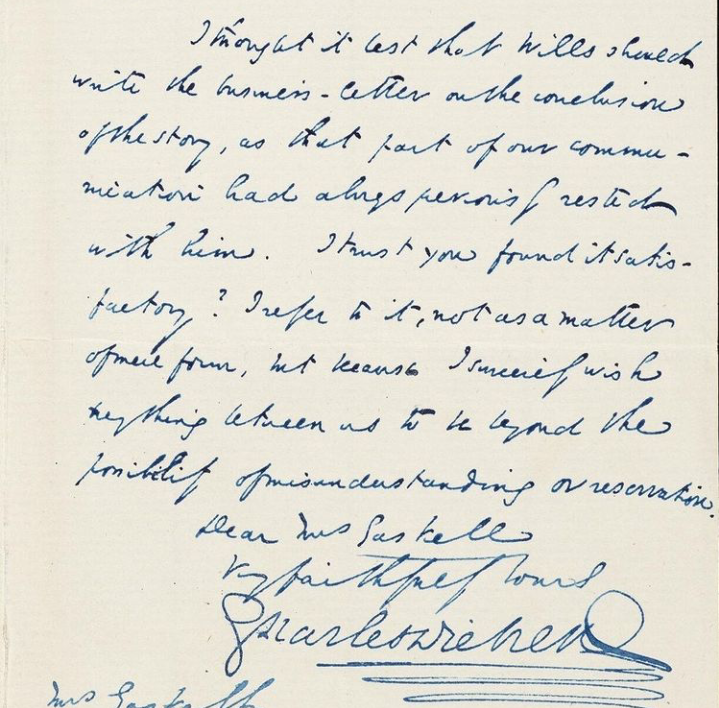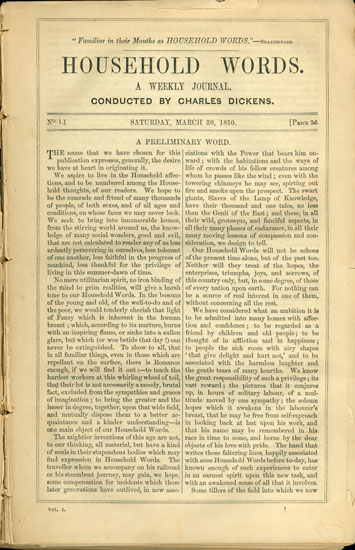
'Disappearances' was a short essay first published by Elizabeth Gaskell in the June 1851 publication of Charles Dicken's journal, Household Words. The essay explored the disappearances of 6 men throughout the nineteenth century and how their stories could have played out differently if the London Detective Police was formed earlier. While Gaskell acknowledges the skills of the new Detective Police, she coherently addresses the concerns she has over the type of change they will constitute in the political sphere, as well as in literature. She brings to discussion the large controversy of public policy and the proper scope of police work, and questions whether they will bring justice or injustice. Furthermore she questions how they will impact the idea of private and public spheres in society; both in reality and fiction.
The London Detective Police were formed in the early 1840's. While the regular division was focused on preventing crime, the new detectives worked all hours ( in and out of uniform) to detect crime. Their formation was direct rusult of criticism from the public on the lack of results the normal police force had in solving murders. The new branch of police became a popular topic in terms of how public policy was handled. While the Detective Police solved many notorious cases, they were also met with scandel and concern. The working-class believed that the new branch worked to only serve the upper class and even the middle class, ultimately fueling concerns about accountability and proper justice. Large debates over their impact on individual liberty and privacy started to grow as well. While society clearly had differing opinions in regards to the Detective Branch, it is well known that Charles Dicken's was enamoured by the idea of solving crime and having a speciefied group to carry out such tasks. He dedicated a lot of his later work to detective and crime related subjects and furthermore helped to establish what we know today as the 'detective novel' that ends with the solving of a crime. The London Detective Police Branch was ultimately disbanded in 1878 due to corrupt accusations and scandels, resulting in the Crime Investigation Department (CID), which is still in practice today.

![Front page of the Illustrated Police News, 25 June 1870 [page: 1] Front page of the Illustrated Police News, 25 June 1870 [page: 1]](https://www.bl.uk/britishlibrary/~/media/bl/global/dl%20romantics%20and%20victorians/collection-items-more/i/l/l/illustrated-front-c13470-60.jpg?w=1920&h=1280&hash=F7CD9ED0AACED8D09680C0092B6E96CD)
In recent studies of Gaskell's 'Disappeances' scholars seem to find little clarity or common ground on what they believe her purpose was in writing on such a controversial topic of the time in a journal managed by Dickens, who was infatuated with the improvement being made by the newly formed Detective Police. While upon first look a reader would see Gaskell's appeciation for the new force, upon a deeper look one would see the ironic judgements. Towards the end of the essay Gaskell states, "Once more, let me say, I am thankful I live in the days of the Detective Police; if I am murdered, or commit bigamy, at any rate my friends will have the comfort of knowing all about it," semmingly referring to the idea that everyone is to know your business if there is no privacy. It largely is believed that Gaskell used 'Disappearances as a exploratory narrative to the changing world of literature in the mid-ninteenth century. The mixed signals in opinion produced by the text seems to insinuate the change that Detective Police is bringing to narrative and mystery in literature. Scholars seem to particularly draw these conclusions by two works that followed 'Disappearances', both being short political-mysteries; "The Manchester Marriage" and "Right at Last". Ultimately, the piece remains a mystery itself!
http://nmi.org/wp-content/uploads/PublicDomain/Disappearances.pdf
https://www.smith.edu/libraries/libs/rarebook/exhibitions/dickens/8-hous....
https://www.jstor.org/stable/48518794?seq=6#metadata_info_tab_contents
https://www.bl.uk/romantics-and-victorians/articles/the-creation-of-the-...
https://rylandscollections.com/2021/02/08/placeholder-gaskell-and-dicke…
